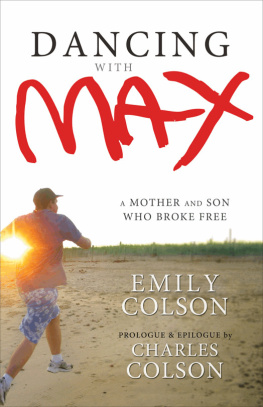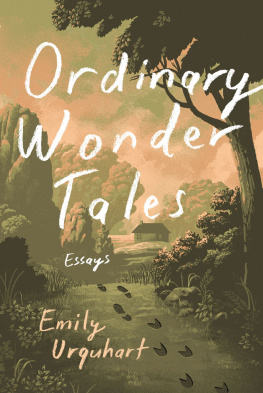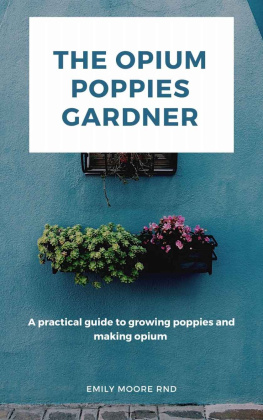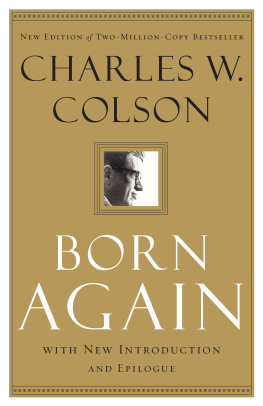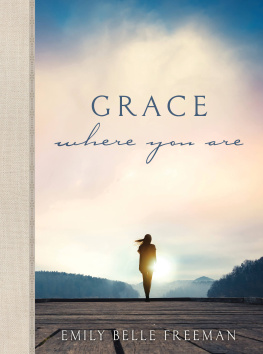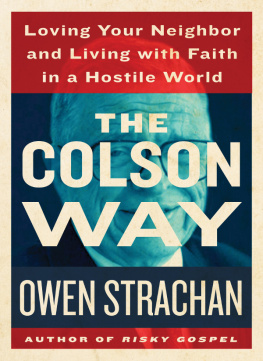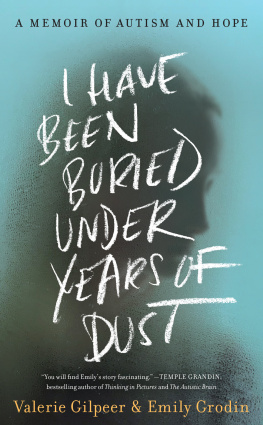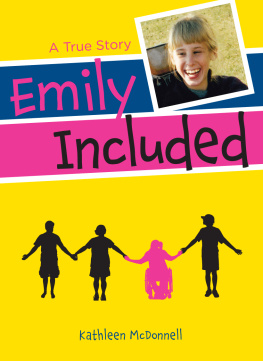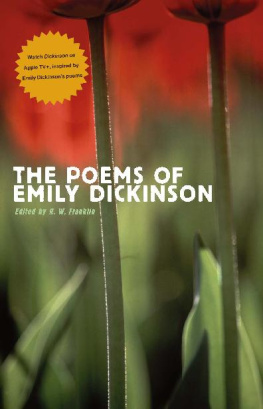
Thank you, Max
PREFACE
EMILY, MAX, AND ME
CHARLES W. COLSON
D ancing with Max is the story of my daughter, Emily, and her autistic son, Max. Emily is the author, and I am in an unaccustomed supporting role.
When I wrote Born Again, the memoir of my experiences in the White House, my conversion, and time in prison, I didnt think Id ever be involved in such a deeply personal project again. That is, until now. I was not ready for the height and the depth of feeling I experienced as Emily unfolded her and Maxs story in this book.
Emily and I share our perspectives of the joys and suffering weve discovered. I write mine in the books prologue and epilogue, in which I talk about my relationship with Emily, the strength she gave me in my own life by watching what shes done in hers, and how Max came to make a bigger place in our hearts than anyone could ever imagine. Emily shares her moving story, of lifes struggles but of its even greater victories, in her own words. She is a gifted writer.
This is a story of triumph, in spite of the suffering and pain. It is most of all a love story, and a story about changed livesEmilys, Maxs, and also mine.
PROLOGUE
CONFESSIONS OF A DAD
CHARLES W. COLSON
T he year was 1986. Arriving at Ninoy Aquino Airport in Manila, I was greeted by a large welcoming committee of Prison Fellow-ship International volunteers and workers wearing festive leis, some of which were immediately draped around my neck. Filipinos are among the most generous and gracious people in the world. This was my last stop on a whirlwind tour of the South Pacific. I had visited prisons in New Zealand and Australia and had spoken at the Australian national prayer breakfast before going on to prisons and a huge public gathering in Port Moresby, Papua, New Guinea.
Exhausted from my four-hour flight on Air Niugini, I was hoping for a few hours rest. But it was not to be. My Filipino brothers and sisters had scheduled every minute of my three days in Manila.
On my second night in the hotel, I was awakened with stomach cramps. I was expelling blood. Alarmed, I called Nard Jimenez, a successful businessman in the Philippines and a good friend. He immediately came to my hotel, bringing with him a doctor, who was also a sympathetic Christian brother. Even though his specialty was urology, he was confidant that my hemorrhaging was most likely due to an ulcer. We need to take you to the hospital immediately, he said. Surgery may well be required.
Youd have to know Manila to understand my reaction. Millions of people, jammed together; hundreds of thousands living in the streets in tin huts in many parts of the city; and nonstop gridlock that makes any crowded expressway in America look like a country road. The only way to penetrate the traffic is with police escortseither the real police or one of hundreds of private companies that escort the wealthy and powerful through Manila every day. This was early Saturday morning, when traffic would be at its worst. I had a big speech scheduled for that night, and I was booked to fly home the next morning. If I stayed in Manila, how could my family even get to me? Memories of Third World hospitals Id seen gave me cold chills.
Whats the alternative? I asked. The doctor told me I didnt have one. You can bleed to death quickly, he added gravely.
Medicine? I asked, pleading.
Once in a while it works, he acknowledged, but I dont recommend it. He shook his head. He was smiling, but then, Filipinos always smile.
When I told him this would just have to be one of those once-in-a-while occasions, he scurried off and returned with bags of pills and antacid solutions. Then my friends left me so that I could sleep, but they promised to stand by in case I needed to be whisked to the hospital.
A few hours later when I awakened, mercifully (perhaps miraculously, I thought) the bleeding and pain had subsided. Though groggy from the medications, and against the stern advice of the doctor, who had returned, I rashly insisted on speaking that night. I havent come halfway around the world to disappoint a big crowd, I said with a weak pretense of bravado.
The doctor warned me that I was taking a big chance by flying home the next day. If the bleeding resumed on the flight, he warned, I could bleed to death in an hour or two. But I decided my chances were better on the flight than they would be in a Philippine hospital. Ron Nikkel, president of Prison Fellowship International, who was traveling with me, made contact with friends in each of the cities where our flight stoppedin case we had an emergency. So Sunday morning I began a journey that took sixteen anxious hours but eventually got me home to Naples, Florida.
Immediately I was given an extensive examination. X-rays revealed a small ulcer, which for some unknown reason had stopped hemorrhaging. But the gastroenterologist didnt buy that diagnosiswhich probably saved my life. Ulcers just dont start and stop bleeding, he said.
So he ordered more tests. Even before they were complete, he informed me that he had discovered a tumor that had punched a hole in my stomach wall. It was a frightening diagnosis.
Thus began an experience that nearly cost me my life but gained my daughter back.
THE SURGERY THAT WOULD REMOVE THE TUMORand perhaps much of my stomach, depending on the results of the biopsywas scheduled for January 1987 and was to be performed by the chief surgeon at Georgetown Hospital in Washington, D.C. I was given the treatment reserved for VIPs and government officialsnot necessarily a good thing, I would soon discoverbut it did mean a private room with a special anteroom right across from the nurses station. The spacious accommodations would prove to be a good thing because my stay in the hospital was to be longermuch longerthan anticipated.
I told my sons, Wendell and Chris, both in their midthirties, and the baby of the family, my daughter, Emily, then twenty-eight, that I would be just fine, that this was simply routine surgery. They certainly didnt need to interrupt their schedules to travel to D.C.
My sons agreed, but Emily would have none of it. She flew to D.C. the night before the surgery and, along with my wife, Patty, was waiting for me as I was wheeled out of the recovery room after four hours on the operating table. Id never known a more beautiful sight in my life than the smiling faces of the two women I most dearly loved. I knew from their expressions I was going to be all right.
Cancer? I asked. Still smiling, they nodded yes.
Did they get it all? I asked. Again they nodded, before I fell back into my narcotic-induced slumber.
Emily and Patty stayed in my room all night, as I groaned in pain, coming out of the anesthesias aftereffects.
The next day, though the pain was great, compounded by an uncomfortable drainage tube inserted through my nose into my stomach, I began the recovery. I was at least comforted by the assurance that Id be out of the hospital in five to six days. I talked Patty into going home so she could get a good nights sleep, but Emily refused and camped out again, huddled in an easy chair in my room.
On the third day, everything came undone. The drainage tube, it turned out, was kinked and had to be twisted around by the doctor, accompanied by his flock of six gawking interns. That was one of my most painful moments in the hospital. Later that day, my temperature shot up, alarming the interns who returned and prescribed massive IV injections of antibiotics. Once I was stabilized, both Patty and Emily went home for the night.
Soon after they left, however, I must have taken a serious turn for the worse because I was in and out of delirium and writhing in pain. My vital signs alarmed the nurse. I dont remember what happened, but soon the doctors surrounded my bed. Close to midnight the nurses called Emily and Patty and told them to return to the hospital immediately.
Next page
